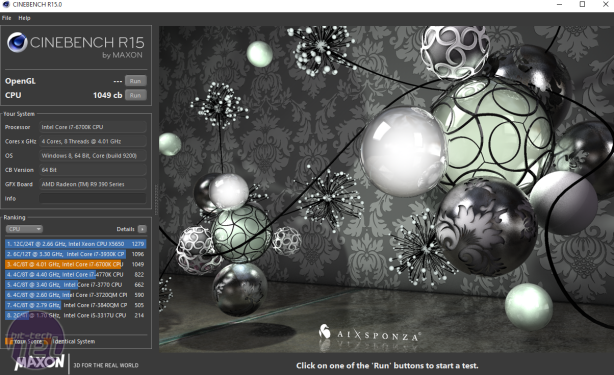
Test Setup
As this is a different motherboard to usual and we can't use our standard CPU or memory test items, we've only carried out a few select tests with the ECS H110S-2P for comparison. We've used a Core i7-6700, which is the fastest 65W CPU available from Intel at the moment, so while the results aren't a like-for-like comparison with other LGA1151 boards we've tested, you can at least see how fast this CPU and indeed the mini-STX platform is compared to your average desktop and laptop CPU.We've used 8GB of Corsair Value Select 2,133MHz SODIMM RAM, along with a Samsung 950 Pro to test the speed of the M.2 port. As there's no PCI-E slot, we've also omitted graphics and game benchmarks.
M.2 Performance
Website: CrystalDiskMarkFor M.2 port testing, we use a Samsung SSD 950 Pro. This is rated at 2,200MB/sec read and 900MB/sec write speeds - not quite saturating the M.2 PCI-E 3.0 x4 interface but enough to give it a good workout. We use CystalDiskMark's 32QD sequential test.
Cinebench R15 64-bit
Website: www.maxon.net
Cinebench uses Maxon's Cinema 4D engine to render a photo-realistic scene of some shiny balls and weird things (we miss the motorbike). The scene is highly complex, with reflections, ambient occlusion and procedural shaders so it gives a CPU a tough workout.
As Cinema 4D is a real-world application - used on films such as Spider-Man and Star Wars - Cinebench can be viewed as a real-world benchmark.

MSI MPG Velox 100R Chassis Review
October 14 2021 | 15:04








Want to comment? Please log in.